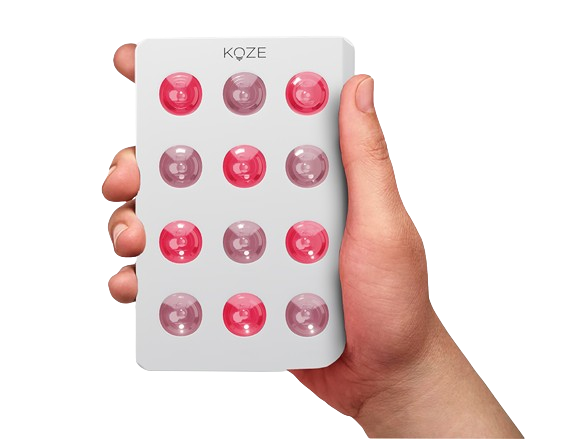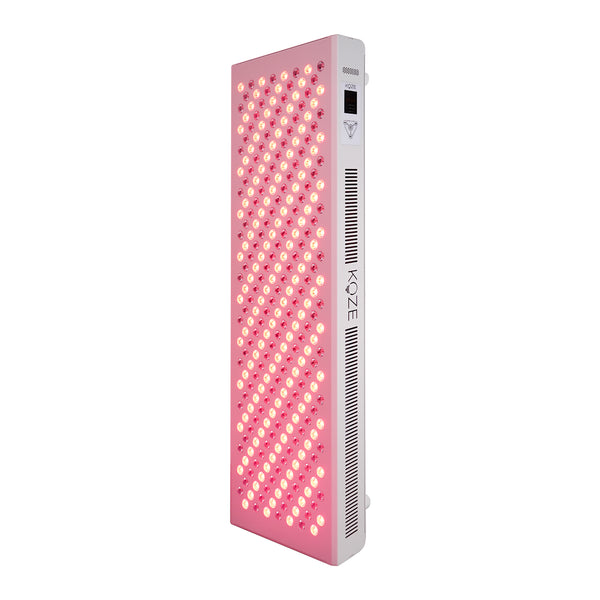
Collagen To Skin
Collagen is often hailed as the fountain of youth for the skin, and for good reason. Being the most prevalent protein in our bodies, it is essential for preserving the firmness, elasticity, and general well-being of our skin.
However, as we age, our body's natural production of collagen begins to decline, leading to the formation of wrinkles, fine lines, and a loss of skin elasticity. In this comprehensive guide, we will delve deep into the world of collagen and explore its vital role in skin health.
We will also uncover various ways to boost collagen levels, from dietary changes to advanced skin treatments, and even explore the emerging field of Red Light Therapy. Join us as we unlock the secrets of collagen for radiant, youthful skin.
Understanding Collagen and Its Role in Skin Health
What Is Collagen?
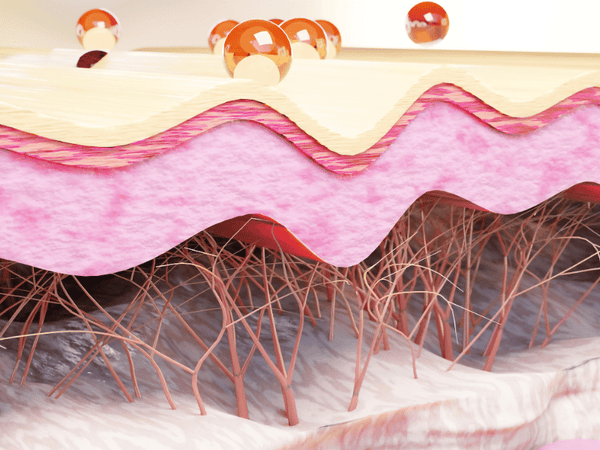
Collagen is a structural protein that acts as a crucial building block for various parts of the body, including the skin, bones, muscles, tendons, and ligaments. It’s composed of amino acids, the most prominent of which are glycine, proline, hydroxyproline, and arginine. There are at least 16 types of collagen, but the skin primarily consists of Type I, II, and III, collagen proteins with Type I being the most abundant and providing structural support to the skin's matrix.
The Role of Collagen in Skin Structure
Collagen’s role in the human skin, cannot be overstated. It contributes to:
-
Elasticity and Firmness: Collagen fibers provide skin with its firmness. When collagen levels are high, the skin appears more youthful and resilient.
-
Hydration: Hyaluronic acid, which binds with water to keep the skin hydrated, works alongside collagen to maintain the skin’s moisture barrier.
-
Healing and Renewal: Collagen plays a part in skin repair. When the skin is damaged, collagen production increases to help heal and renew the skin tissue.
The Importance of Collagen for Skin Health: A Closer Look
Studies have shown that collagen peptides, when ingested or applied topically, can improve skin elasticity and hydration, and reduce wrinkles. A notable study published in the Journal of Medical Nutrition and Nutraceuticals highlighted that participants who consumed oral collagen supplements daily for 8 weeks showed significant improvements in skin hydration and elasticity.
Enhancing Skin Health Through Collagen
-
Incorporating collagen-rich foods into your diet, such as bone broth, fish, berries, garlic, and leafy greens, can provide the amino acids necessary for collagen synthesis.
-
Skincare products containing collagen peptides can also support the skin’s collagen network from the outside, aiding in maintaining its youthful appearance.
Collagen is more than just a buzzword in beauty and wellness; it’s a fundamental component of skin health, influencing its appearance and aging process. By understanding collagen's pivotal role, we can better appreciate the various strategies for maintaining and enhancing our skin’s collagen levels.
How Collagen Affects Skin Aging
The Natural Decline of Collagen Production
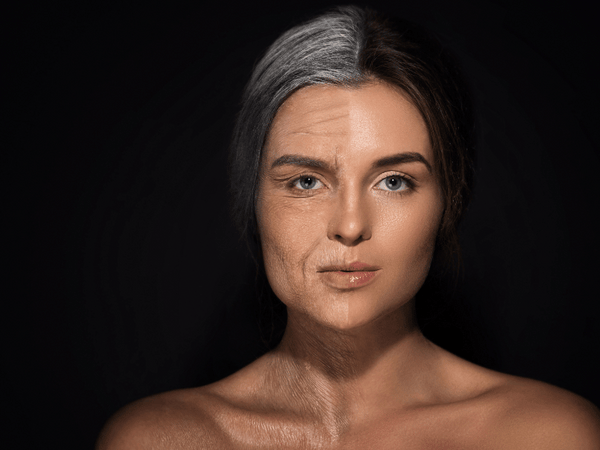
As we age, our bodies produce less collagen. This decline oral collagen typically begins in our mid-20s and accelerates in our 30s and 40s. By the time we reach our 50s, our collagen levels may have dropped by as much as 30%. This reduction in collagen leads to:
-
Wrinkles and Fine Lines: The skin loses its firmness and begins to sag, resulting in the formation of wrinkles and fine lines.
-
Decreased Elasticity: The skin becomes less elastic, leading to a less supple and more aged appearance.
-
Thinner Skin: The skin becomes thinner and more fragile, making it more susceptible to damage.
External Factors That Accelerate Collagen Breakdown

Several external factors can further accelerate the breakdown of collagen in the skin:
-
Sun Exposure: Ultraviolet (UV) rays from the sun can damage collagen fibers, leading to premature skin aging.
-
Pollution: Environmental pollutants can produce free radicals that degrade collagen and elastin in the skin.
-
Smoking: Cigarette smoke contains toxins that can reduce collagen production and degrade existing collagen.
-
Poor Nutrition: A diet lacking in essential vitamins and minerals can hinder the body's ability to produce collagen.
Preventing Collagen Loss: Strategies for Healthy Skin

-
To combat the natural decline of collagen, it's essential to protect your skin from the sun by using broad-spectrum sunscreen, wearing protective clothing, and seeking shade when necessary.
-
Incorporating antioxidants into your skincare routine can help neutralize free radicals and protect collagen from environmental damage.
-
Maintaining a balanced diet rich in vitamins C and E, omega-3 fatty acids, and protein can support collagen production and overall skin health.
The natural aging process and external factors contribute to the decline in collagen, leading to visible signs of aging skin. By understanding these factors and adopting preventative measures, we can slow down the aging process and maintain healthier, more youthful-looking skin.
Boosting Collagen Levels for Skin Health
Nutritional Support for Collagen Production

Diet plays a crucial role in supporting collagen production in the body. Incorporating the following nutrients and foods into your diet can help to boost collagen production levels:
-
Vitamin C: Essential for collagen synthesis. Found in citrus fruits, strawberries, bell peppers, and broccoli.
-
Proline and Glycine: Amino acids required for collagen production. Rich sources include bone broth, gelatin, and lean meats.
-
Zinc: A mineral that acts as a cofactor in collagen synthesis. Present in oysters, pumpkin seeds, and legumes.
-
Copper: Another important mineral for collagen production. Found in nuts, seeds, and shellfish.
Table: Foods for Collagen Production
| Food | Nutrient | Benefit for Collagen Production |
|---|---|---|
| Citrus fruits | Vitamin C | Essential for collagen synthesis |
| Bone broth | Proline, Glycine | Provides amino acids for collagen |
| Oysters | Zinc | Acts as a cofactor in collagen synthesis |
| Nuts | Copper | Important for collagen production |
Topical Collagen Treatments
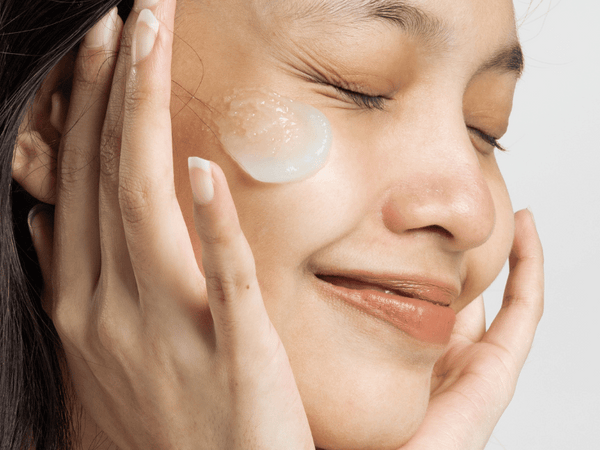
Topical treatments can also help boost collagen levels in the skin:
-
Collagen Creams and Serums: These products often contain collagen peptides that can penetrate the skin and support its collagen network.
-
Retinoids: Derived from vitamin A, retinoids can stimulate collagen production and improve skin texture.
-
Peptides: Short chains of amino acids that can signal the skin to produce more collagen.
Choosing the Right Collagen Treatment
-
When selecting a collagen cream or serum, look for products with hydrolyzed collagen or collagen peptides, as they are more easily absorbed by the skin.
-
If using retinoids, start with a lower concentration to avoid irritation and gradually increase as your skin adapts.
Boosting collagen levels through diet and topical treatments can significantly improve the health and appearance of your skin. By providing your body with the necessary nutrients and using products that stimulate and promote collagen production, you can maintain a youthful, radiant complexion.
Advanced Collagen-Boosting Techniques
Collagen Supplements and Their Efficacy
Collagen supplements have gained popularity as a convenient way to increase collagen intake. These supplements are usually made from animal sources, such as cow or marine collagen, and are available as powders, capsules, or liquids. The collagen in these supplements is hydrolyzed, meaning it's broken down into smaller peptides for easier absorption.
The Science Behind Collagen Supplements
Studies have shown that consuming collagen supplements can improve skin elasticity, hydration, and reduce the appearance of wrinkles. For example, a study published in the Journal of Cosmetic Dermatology found that participants who took a collagen supplement for 12 weeks experienced significant improvements in skin hydration and elasticity compared to a placebo group.
Professional Skin Treatments to Stimulate Collagen

For those seeking more immediate or dramatic results, professional skin treatments can be an effective option:
-
Microneedling: This procedure involves using fine needles to create micro-injuries in the skin, stimulating the body's natural healing process and boosting collagen production.
-
Laser Therapy: Laser treatments can promote collagen remodeling by delivering focused light energy to the skin, encouraging the growth of new collagen fibers.
-
Radiofrequency Treatments: These procedures heat the skin's deeper layers using radiofrequency energy, which promotes the formation of collagen and produces firmer, smoother skin.
Choosing the Right Professional Treatment
To find the best course of action for your particular skin type and concerns, it is imperative that you speak with a dermatologist or other qualified skincare specialist.
Advanced collagen-boosting techniques, such as supplements and professional skin treatments, offer additional avenues for enhancing skin health and appearance. Whether you opt for dietary supplements or in-office procedures, these strategies can further support your skin's collagen levels and contribute to a more youthful complexion.
Red Light Therapy and Collagen Production
What Is Red Light Therapy?
Red light therapy (RLT), sometimes referred to as photobiomodulation or low-level laser therapy (LLLT), is a non-invasive procedure that penetrates the skin using particular red and near-infrared light wavelengths. Unlike UV light, red light doesn't cause damage to the skin's surface. Instead, it's absorbed by the mitochondria in skin cells, stimulating energy production and promoting various cellular processes.
The Science Behind Red Light Therapy and Collagen

The interaction between red light and skin cells can have several beneficial effects on collagen:
-
Stimulating Collagen Production: RLT has been shown to increase the production of collagen in the skin, leading to improved skin texture and reduced signs of aging. A study published in the Journal of Photochemistry and Photobiology found that participants who underwent RLT experienced significant increases in collagen density compared to a control group.
-
Enhancing Skin Elasticity: By boosting collagen levels, RLT can improve skin elasticity and firmness, resulting in a more youthful appearance.
-
Accelerating Wound Healing: The increased collagen production stimulated by RLT can also aid in faster wound healing and skin repair.
Incorporating Red Light Therapy into Your Skincare Routine
-
RLT can be administered through professional treatments at dermatology clinics or through at-home devices designed for personal use.
-
It's important to follow the manufacturer's instructions and consult with a healthcare professional to ensure the safe and effective use of RLT devices.
Red Light Therapy offers a unique and innovative approach to boosting collagen production and improving skin health. By incorporating RLT into your skincare routine, you can harness the power of light to rejuvenate your skin from within.
KOZE™ Mini
The KOZE Mini is a cutting-edge Red Light Therapy device that combines portability with powerful therapeutic benefits. This rechargeable, handheld gadget is designed to be lightweight and compact, making it easy to carry with you wherever you go.
Whether you're at home, in the office, or traveling, the KOZE Mini allows you to enjoy the advantages of light therapy at any time. It's effective in enhancing skin tone, boosting mental health, and alleviating aches and pains.
The device comes with a durable hard shell KOZE travel case, ensuring your Mini stays protected on the move. To enhance your experience, consider adding the new KOZE Mini Stand, which provides a convenient and stable way to position your device for optimal therapy sessions.
KOZE S Series
The KOZE S Series is a state-of-the-art Red and Near Infrared Light Therapy device, designed to deliver powerful therapeutic benefits with its advanced dual-chip LED technology.
Equipped with an adjustable stand, this device offers versatility and convenience for targeted treatments. It is perfect for individuals seeking deeper sleep, rejuvenating skin treatments, and relief from muscle aches and joint pain.
The KOZE S Series is particularly ideal for facial treatments or focused therapy on specific areas of the body, providing a personalized and effective approach to wellness and self-care.
KOZE X Series (White)
The KOZE X Series is the pinnacle of Red and Near-infrared Light Therapy technology, offering the largest and most powerful panel in the KOZE lineup. This custom-built device is designed to provide optimal results in minimal time, making it an excellent choice for those seeking to enhance full-body performance, speed up workout recovery, improve skin health, and boost overall wellness.
To accommodate various treatment preferences, the KOZE X Series offers a choice between a Vertical Stand and a Horizontal Stand, ensuring you can tailor your therapy sessions to your specific needs.
A team member will reach out to confirm your stand choice, and it's worth noting that the stand color is black, adding a sleek and professional look to this top-of-the-line therapy panel.
Myths and Misconceptions About Collagen and Skin
Debunking Common Collagen Myths
Collagen is surrounded by a plethora of myths and misconceptions. Let's set the record straight:
-
Myth: Topical collagen creams can replace lost collagen in the skin.
-
Fact: While topical collagen creams can provide temporary hydration and plumpness, the collagen molecules are generally too large to penetrate the skin and integrate into its collagen matrix.
-
Myth: Eating collagen-rich foods directly increases skin collagen.
-
Fact: Collagen from food is broken down into amino acids during digestion, which the body then uses to produce its own collagen. It's not a direct one-to-one transfer.
-
Myth: Collagen supplements work instantly.
-
Fact: It can take several weeks to months of consistent use to see noticeable effects from collagen supplements.
Understanding the Limitations of Collagen Treatments
While collagen treatments can provide benefits, it's important to have realistic expectations:
-
Efficacy: The effectiveness of collagen treatments can vary depending on the individual's age, skin condition, and lifestyle factors.
-
Results: While collagen can improve skin appearance, it's not a miracle cure for all skin issues or a substitute for a healthy lifestyle.
-
Safety: Always consult with a healthcare professional before starting any new collagen treatment, especially if you have existing health conditions or are pregnant.
Collagen plays a vital role in skin health, but it's crucial to approach its use with accurate information and realistic expectations. By debunking common myths and understanding the limitations of collagen treatments, we can make informed decisions about our skincare routines.
Conclusion
Collagen is the cornerstone of youthful, healthy skin, playing a pivotal role in maintaining its structure, elasticity, and hydration. There are outward indications of aging since our natural collagen production declines with age. However, by understanding the science behind decreased collagen production and its impact on the skin, we can take proactive steps to support and enhance our collagen levels.
From incorporating collagen-boosting nutrients into our diets to exploring topical treatments and advanced techniques like Red Light Therapy, there are numerous ways to nurture our skin's collagen matrix. By debunking myths and setting realistic expectations, we can approach collagen care with informed confidence.
Ultimately, the journey to radiant, collagen-rich skin is a holistic one, encompassing a balanced diet, proper skincare, and a healthy lifestyle. By embracing this comprehensive approach, we can celebrate the beauty of our skin at every stage of life.
FAQ Section
Q: Can collagen reverse wrinkles and fine lines?
A: While collagen can improve skin elasticity and reduce the appearance of fine lines and wrinkles, it's not a complete reversal. A combination of collagen-boosting treatments and preventive measures is the most effective approach.
Q: How long does it take to see results from collagen supplements or treatments?
A: Results can vary, but it typically takes several weeks to months of consistent use to notice improvements in skin texture and appearance.
Q: Are there any side effects associated with collagen supplements?
A: Collagen supplements are generally safe, but some people may experience digestive issues or allergic reactions. Consult with a healthcare professional before starting any new supplement.
Q: Can vegans get enough collagen through their diet?
A: While collagen is not found in plant-based foods, vegans can support their body's collagen production by consuming a diet rich in collagen-boosting nutrients like vitamin C, proline, and glycine.
Call to Action
Are you ready to embark on a journey to healthier, more youthful skin? Consult with a dermatologist or skincare professional to determine the best collagen-boosting regimen for your individual needs. Embrace the power of collagen and unlock the secret to radiant, age-defying skin today!

